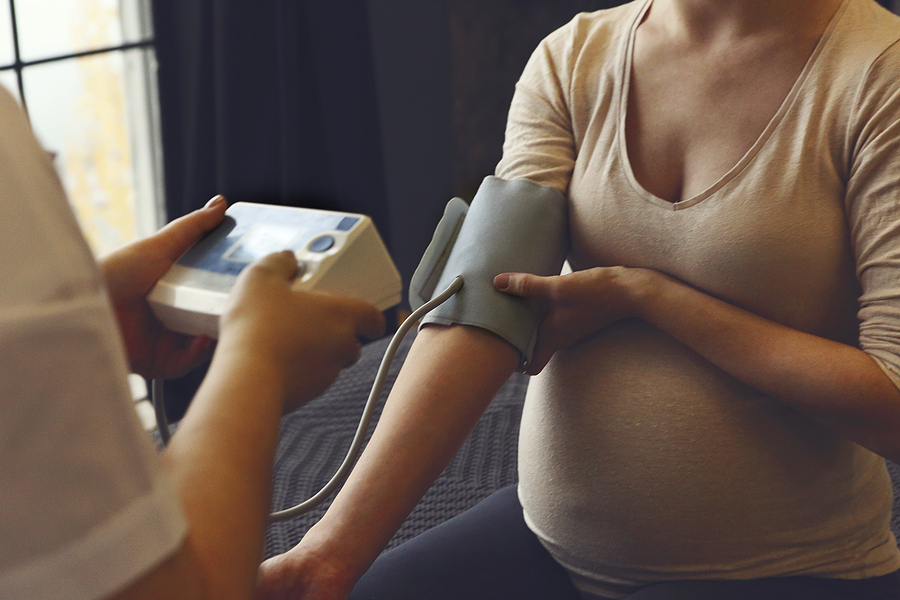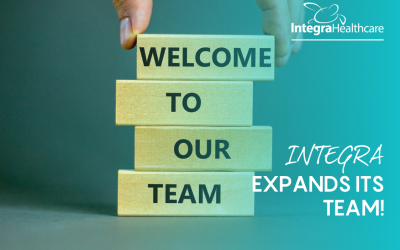High-risk pregnancies: An overview
There are a small proportion of pregnancies that carry a greater risk and complications that can negatively impact the health of the mother, baby or both. These are classified as ‘high-risk pregnancies’. We use the term ‘high-risk’, because specialist care is needed during the pregnancy to ensure optimal health and safety for both the mother and baby.The majority of high-risk pregnancies and births do go without complication. However, it is important to note that this is because of the cautious approaches put in place to help ensure that any risks are addressed. It also means ensuring that you have a contingency plan put in place by specialists, which include OBGYNs but also by a qualified maternal-fetal medicine specialist where closer monitoring and management are required.Risk-factors for a high-risk pregnancy
Some women will know from the start that they are likely to be higher risk due to the presence of certain risk factors (see below), which helps them make sensible choices about whether they might need a dedicated high-risk pregnancy service. However, for some, risk is not apparent at the start and so understanding what a high-risk pregnancy is and what to do if issues emerge is part of ensuring yours and your baby’s safety. The following list of risk factors is not designed to be fully comprehensive but certainly covers the main ones.Existing health conditions:
- High blood pressure
- Polycystic ovary syndrome (PCOS)
- Diabetes
- Kidney disease
- Autoimmune disease
- Thyroid disease
- Obesity
- Certain infections e.g. Zika
- Women living with health problems like high blood pressure, anaemia, blood problems like thalassemia and sickle cell disease or trait, asthma epilepsy, diabetes, heart or blood disorders, obesity, autoimmune disease like lupus or rheumatoid arthritis, kidney disease, thyroid disease, or chronic infections like HIV, Hepatitis B or C are at higher risk. Some sexually transmitted infections and mental health concerns like depression can also pose a risk to pregnancy.
Life Decisions and Lifestyle:
- Age of the mother: Women who are younger than the age of 17 and older than the age of 35 are more likely to experience pregnancy complications than women between the ages of 17 and 35. Women who are over 40 years of age also have a higher risk of experiencing miscarriage and delivering a baby with genetic disorders. In Cayman, we have our fair share (or more) of pregnancies in women over 35 years of age.
- Alcohol use
- Tobacco use
- Drug use
Conditions of Pregnancy:
- Multiple gestation
- Gestational diabetes: Gestational diabetes is another complication that develops during pregnancy, usually resolving after the delivery of the baby. If you have developed Gestational diabetes, your Maternal-Fetal Medicine Specialist will follow your baby’s growth and well-being, and manage your health with nutrition counseling, glucose monitoring and, possibly, medications.
- Pre-eclampsia: Pre-eclampsia is a condition unique to pregnancy where you have high blood pressure in conjunction with protein in your urine and edema (swelling of the skin). In some women with pre-eclampsia, liver or platelet abnormalities are present. Referral to a Maternal-Fetal Medicine Specialist may be important, depending on the severity of your disease or if you are preterm. The treatment of pre-eclampsia is delivery of the baby, so this is a condition that requires very close monitoring to balance maternal complications against the risks of delivering your baby early.
- Eclampsia
- Previous preterm birth: Past preterm births may also predict future early deliveries, and so coordination with a neonatologist may be important.
- Placental complications: Placenta previa is a condition in which the placenta covers the cervix. The condition can cause bleeding, especially if a woman has contractions. If the placenta still covers the cervix close to delivery, your doctor will schedule a cesarean section to reduce bleeding risks to the mother and baby.
- Fetal problems: These can be seen on ultrasound. Approximately 2% to 3% of all babies have a minor or major structural problem in development. Sometimes there may be a family history of fetal problems, but other times these problems are completely unexpected. If you are under the care of a Maternal-Fetal Medicine Specialist, they will monitor and test for these problems and discuss them with you, advising on the implications and care options.
- Birth defects or genetic conditions: Previous issues with miscarriage and/or a complicated genetic family history are also risk factors for a high-risk pregnancy.
Role of Maternal-Fetal Medicine Specialist
As mentioned above, after the circumstances of a high-risk pregnancy are reviewed and there are risk factors or concerns, you will likely be referred to a Specialist in Maternal-Fetal Medicine. In certain cases, pregnancy women with existing health conditions or genetic risks may even be referred to Specialist in Maternal-Fetal Medicine before pregnancy. This type of doctor has received special training in how to care for women with a high-risk pregnancy. It is a higher training than normal obstetric training and carries formal accreditation in modern health systems, as well as experience of working in high-risk specialist centres.
In addition, the Maternal-Fetal Medicine Specialist has extensive training in assessment and treatment of fetal problems. In this case, the Maternal-Fetal Medicine Specialist will coordinate your care, as well as your baby’s care during pregnancy, with other doctors, nurses, and other healthcare professionals, and at delivery with the help of a Neonatal care team to ensure the best possible outcome for both you and your baby. The goal is to improve the outcome of the patient’s current pregnancy, as well as lower her risks for complications in future pregnancies. Safe care typically involves a multidisciplinary approach and seamless coordination.
Are there preventative measures?
Many recommend a preconception appointment with your health care provider or OBGYN to ensure you are as healthy as you can be before you become pregnant, even if you have no existing health conditions. OBGYNs and Maternal-Fetal Medicine Specialist may recommend the following to help reduce risk of certain conditions:- Getting at least 400 micrograms of folic acid daily, starting before and continuing through pregnancy, occasionally you may be advised to take bigger doses like 5 mg of folic acid.
- Getting recommended immunizations
- Eating a healthy balanced diet and maintaining proper weight
- Getting regular physical activity, unless advised otherwise by your doctor
- Eating a healthy balanced diet and maintaining proper weight
- Avoiding smoking, alcohol, and drugs (except for medications approved by your doctor)
- Taking only the over the counter and prescription medicines that your doctor or midwife has OK’d for you
- Seeing your doctor regularly
- Working with them to manage problems such as diabetes, depression, high blood pressure, or infection
Integra Healthcare’s High-Risk Pregnancy Service
The Integra Obstetric-Neonatal team collectively represents decades of consultant-level, tertiary experience in managing both high risk pregnancies and the fetal or newborn complications that can arise. It is quite simple unique on Island:- Only combined Obstetric-Neonatal team, allowing a true, seamless, multidisciplinary approach
- Only team with both obstetric and neonatal accredited and experienced tertiary consultants
- Detailed fetal anomaly scans conducted by a highly experience sonographer and independently reported
- All key obstetric and neonatal team members live within 5 minutes of Cayman Islands Hospital in George Town
- 24/7 access to the team for concerns or urgent care issues
In the meantime, if you have would like more information or have any concerns, we’d be delighted to help:
Based on our combined experience of literally thousands of high-risk pregnancies, here and in the UK, our approach is comprehensive, designed to assess all risk factors, proactive and multidisciplinary. We’d be delighted to talk through that approach in detail, without charge, so that you can understand just why it is unique, as well as meet the team members who might be involved.
Click here for more information.



